Jasmine Birtles
Your money-making expert. Financial journalist, TV and radio personality.


Anyone with green fingers wants to know how to save money gardening. The more time you spend there – and particularly in the garden centre – the more it seems to cost!
Of course we have lots of information for you on how you can make money in your garden and it’s worth taking a look there to see how you could be quids-in with your space.
But cut the costs first and you can make even more money long-term. Here are our fourteen top ways to do that.
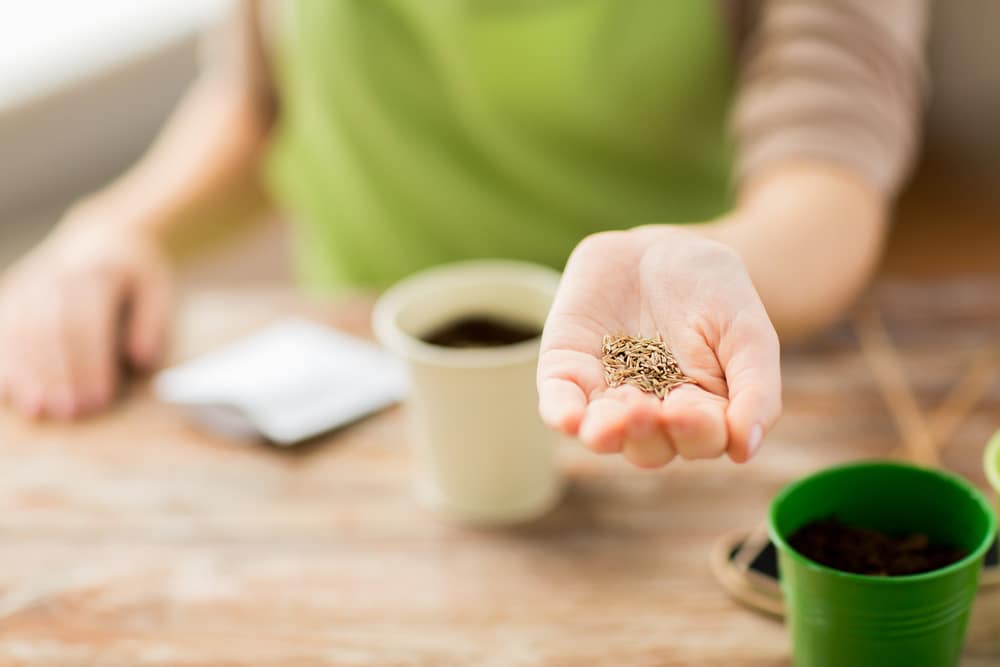
You can’t do this with all plants, but quite a few will produce their own seeds which you can then ‘harvest’ and store to use later on, or swap with friends or even sell at car boot sales.
The Royal Horticultural Society has step-by-step instructions on how to take and store seeds from various different types of plants here. If you’re interested it’s a good place to start.
You need to store seeds in a cool, dry place in containers that will keep them dry. Envelopes can work for some and others need good jars or airtight containers like the ones here.

If you’ve got any burning questions about pretty much anything to do with your garden then you should get yourself to one of the National Trust sessions.
The National Trust has an Heritage Gardening Scheme for volunteers and employees and it also runs workshops and ‘how-to’ videos on various aspects of gardening among other skills. See more here.

If there’s an unusual or particularly special plant that you really want, save yourself serious money by buying a smaller version of it and waiting for it to grow.
You must also remember to choose your plants wisely.

Garden centres are planned and laid-out to make you spend more. We all do it, but you can cut the cost somewhat by following these tips:
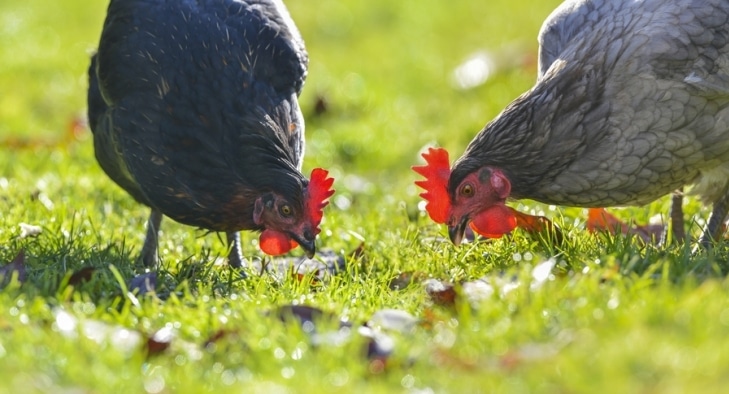
OK, I know this probably doesn’t sound like it’ll save you money, but bear with me.
For just 50p a bird, you can do a great deed and rescue battery hens who would otherwise be slaughtered.
Once the hens have adjusted to their new home (which usually takes a few months) you could be getting as many as 4-5 each day from 10 hens. Plus they help with weed and pest control in the garden.
To find out more about adopting ex-battery hens, read our article here and have a look at the British Hen Welfare Trust.
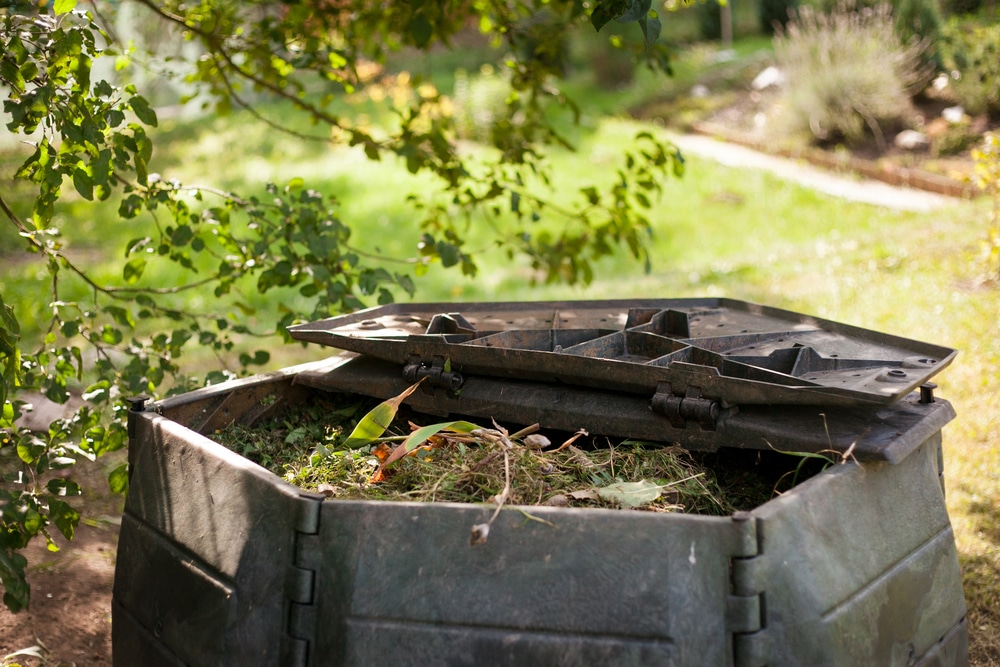
TV gardening expert Chris Beardshaw recommends composting your own green waste rather than putting it out for the council.
It’s easy to make your own compost from biodegradable waste – mostly leftover food and peelings from the kitchen. It’s also environmentally friendly of course.
If you have no idea how to go about this, we suggest checking out Recycle Now. This site has a step-by -step guide to the composting process.
The compost you make can be dug into the soil or spread on the surface as a mulch, so you won’t have to buy as much soil improver.
Lakeland has lovely ‘compost’ containers for the kitchen.
Once it’s filled you can take it out to your compost heap in the garden and let it rot down. You can get compost bins like this one that’s just £16.99 from Lakeland.
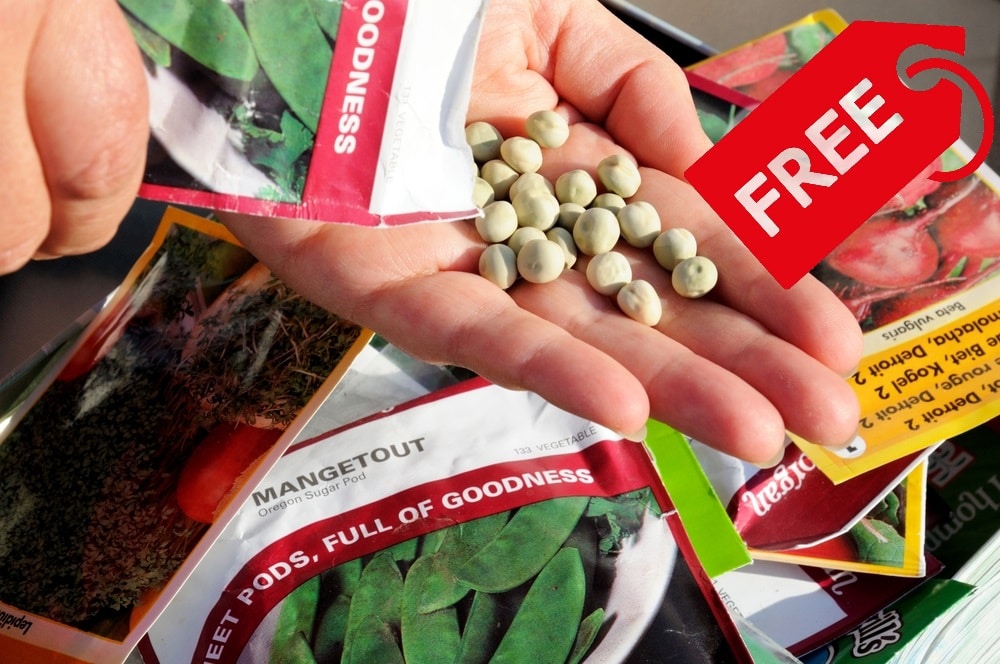
Always keep an eye out for seed offers and giveaways with magazines.
You can also get new plants absolutely free by propagating your own shrubs from cuttings of friends, neighbours or even your own plants. Taking a small cutting is enough to eventually establish large areas of shrub and it won’t cost you a thing!
Growing plants from seeds are a great way to get loads of plants for next to nothing. Packets often contain hundreds of seeds and are easy to grow and can produce really quick results.
Consider plants like Cosmos, Poppies, Rocket, salads and lettuces. For a great choice of reasonably priced seeds check out sites like Gardening Direct and Sutton Seeds.

Obvious really – at least you would think it would be obvious that swapping and sharing all these things would help everyone, but it doesn’t seem to be obvious to everyone, which is why I’m including it here.
Cuttings are a particularly easy thing to swap, assuming you know where to cut. Roses, hydrangeas and geraniums as well as other flowering plants with solid stalks are good for sharing. You can also share cuttings of herbs.
The website YouGrowGirl has ideas here on how to share plants.
Fruit and veg really should be obvious sharers, but it’s surprising how many people don’t think of it. Get friendly with your neighbours, and share and swap your extra produce with them. If you live in a remote place, place them in a box by the road with a note offering them to anyone passing by. Even better, take them to a food bank or homeless shelter.
Don’t waste any of it!!

Does that sound like sacrilege to you? Pull up the grass and roll out some plastic stuff?
Fair enough, it’s not for everyone. But you might be pleasantly surprised by how well it can work, particularly in shady gardens.
Londoner Caroline Bernstein, who has a back garden half shaded by very tall trees from her neighbour’s garden replaced her lawn with astro turf two years’ ago and says it’s wonderful. “I tried everything to make the grass grow,” she says, “including laying new turf twice, feeding it, watering it through the summer months and more. Nothing worked so I replaced it with astro turf and it’s wonderful. You really wouldn’t know that it was fake, particularly from a distance.”
After an initial outlay for the astro turf, it is wonderfully cost-effective as you can get rid of the lawnmower, forget having to feed and water the grass, revel in the freedom from having t replace bits of turf and cut back on paid gardening help, if you were having that before.
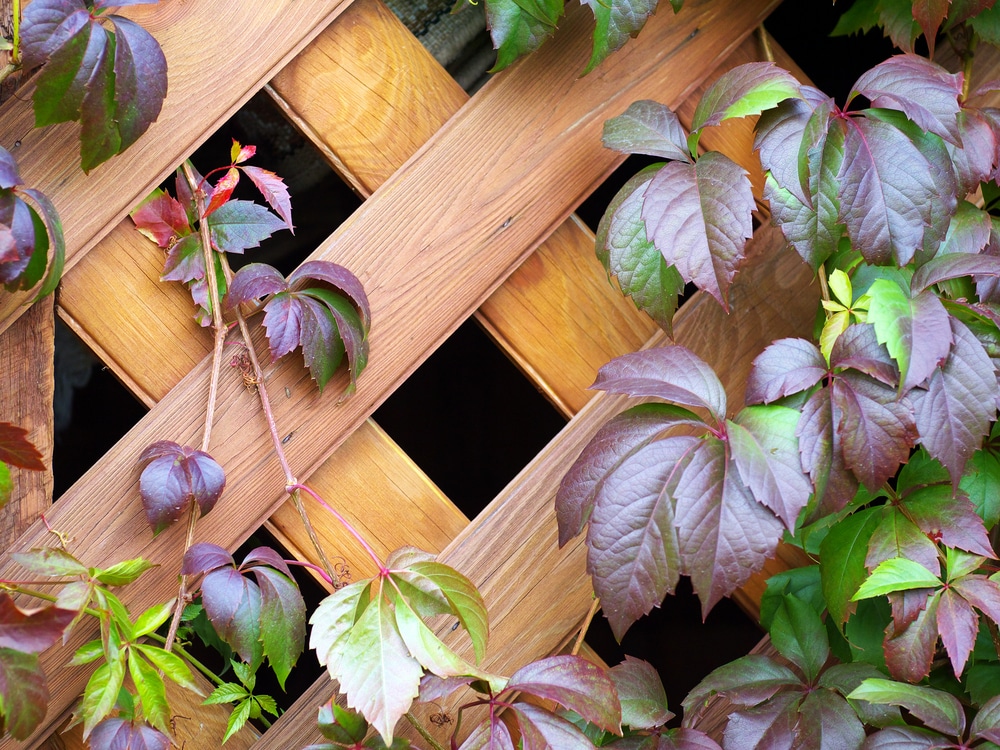
Climbing plants are great because after a while they can grow so big they cover a whole wall. Just one small plant can take over the garden if you let it. If you can bear it, ivy will cover any patch of wall or ground you don’t want to look at. Better than that, though, are beautiful and fragrant climbers like honeysuckle, jasmine (excellent name), wisteria and roses.
Here are thirty of the best from Gardens Illustrated.
If you want easy-care, cheap and ‘filling’ for your flower borders, shrubs really are the best. Admittedly they are not always the most spectacular or colourful, but they fill holes and create a solid backdrop for more colourful shorter-lived plants.
Buy self-seeding and spreading plants like Forget-Me-Not and Periwinkle, and you’ll save yourself a fortune by being able to cover larger areas with fewer plants.
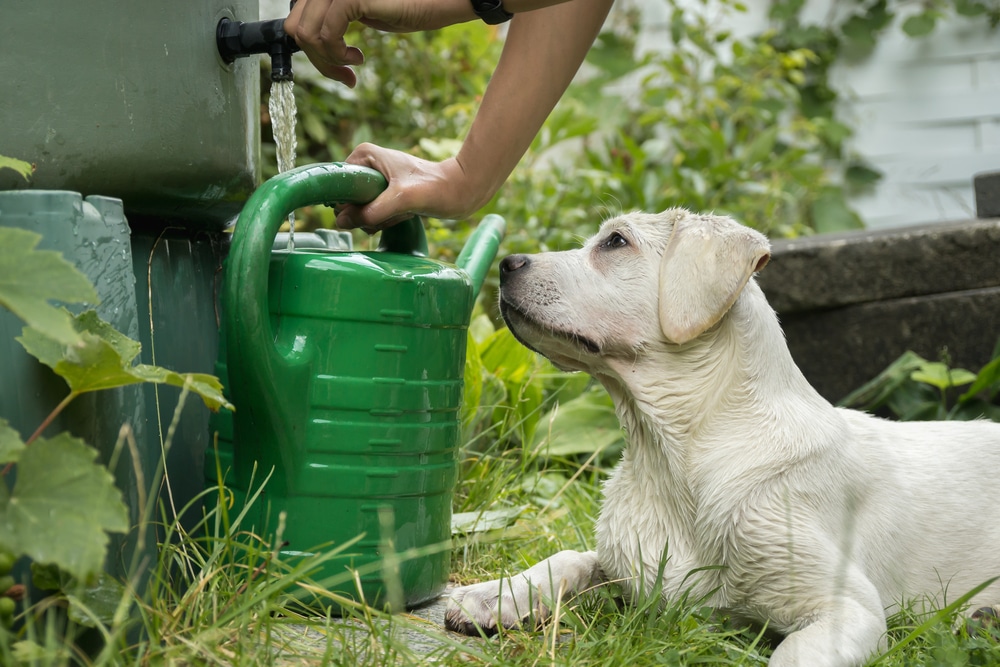
Chris’s other big way to save money by being environmentally savvy is to invest in a good water butt or large container to collect rainwater. It’s space saving, can hold 100 litres of water, and comes with its own stand – a bargain frankly.

Join other plant and gardening lovers, and sell your seeds, gardening tools and garden furniture on an online marketplace. Download the app Candide for one such venture. Also, get tips on your garden and how to grow the best plants. What’s not to like?
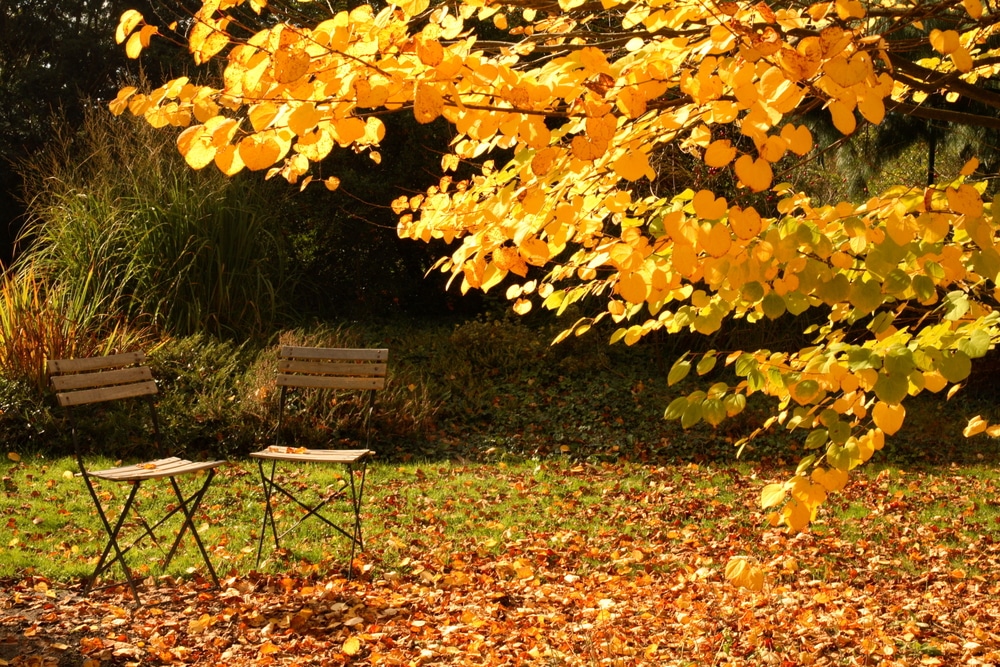
Basically in the end-of-summer sales when garden centres, department stores and even supermarkets are selling off their BBQs, garden furniture, outdoor lighting and even some plants and seeds.
Apart from the fact that most of these things will last well into next summer, British weather is on your side. As you know, we tend to get some really good weather in September and even early October, particularly if the summer months have been poor. So you should get some wear out of

For completely free garden equipment, trees, shrubs, plants and seeds, keep your eye on your local Freecycle group and your local Gumtree for their Free Stuff section.
It’s amazing what people give away each day. Often people want to completely re-do their garden so they give away perfectly good garden furniture, tools, plants and trees.
What can be more money-saving than totally free stuff??

Useful tips for garden money saving.
A great post this, without a budget (plans for how you’re going to make use of the paycheck your company generates and meet your financial obligations) you won’t know where your capital is going, or once. You have to to be able to settle your debts, plan for crisis expenditures, build payroll, pay taxes, plan for paycheck generation…without a sound budget, your corporation could soon turn out to be defunct.
I am experiencing a problem with seeing your page layout through the most recent version of Opera. It is fine in IE7 and Firefox however.Have a nice day.
Thank you for letting us know. We’ll look into it 😉
A great post this, without a budget (plans for how you’re going to make use of the paycheck your company generates and meet your financial obligations) you won’t know where your capital is going, or once. You have to to be able to settle your debts, plan for crisis expenditures, build payroll, pay taxes, plan for paycheck generation…without a sound budget, your corporation could soon turn out to be defunct.
I am experiencing a problem with seeing your page layout through the most recent version of Opera. It is fine in IE7 and Firefox however.Have a nice day.
Thank you for letting us know. We’ll look into it 😉